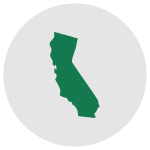Distance Learning
As a result of the COVID-19 pandemic, many schools have shifted to distance learning formats (or blended formats) in lieu of traditional classroom teaching. This unprecedented shift poses new challenges to parents, educators and students, but has particularly important implications for students with disabilities. While methods of support for these students are well established in the classroom setting, distance learning has brought a new set of associated needs. Students with disabilities may require a range of new accommodations, including assistive technology, one-on-one teaching, alternative assignment mediums and schedule flexibility.
Students with disabilities receive protections and services under several federal laws. Most broadly, the Americans with Disabilities Act (ADA) prohibits discrimination on the basis of disability in all services, programs and activities provided to the public by state and local governments. The Individuals with Disabilities Education Act (IDEA) guarantees students with disabilities a Free Appropriate Public Education (FAPE) in the least restrictive environment. Students with disabilities receive individualized education programs (IEP) under IDEA, while other students who need additional support but do not meet the IDEA definition of a disability, receive services under Section 504 of the Rehabilitation Act via a 504 plan.
Together, the ADA, the IDEA and Section 504 of the Rehabilitation Act require that schools provide an accessible and equitable education for students with disabilities. Although these laws mandate equal access, they provide states flexibility regarding how access is provided.
In response to the outbreak of COVID-19, states have taken steps to make students, parents and educators aware of useful resources, tools and information that can facilitate distance learning.
Providing administrators and educators with best practices and strategies for distance learning

Arizona provided a Virtual Resource Hub, which offers resources to assist educators in providing virtual education. The hub includes a section dedicated specifically to resources on instructing students with disabilities, including assistive technology, content specific and transition resources.

Delaware created a comprehensive list of Remote Learning Resources for districts and schools to better provide equitable access to all students during distance learning. It covers topics such as accessibility and planning.

California produced a series of informational videos on distance learning with a large portion focused on special education. The webinars include specific, targeted topics, such as an informational deaf education discussion, and more general subjects, such as the use of universal design in distance learning. The webinars are led by administrators and educators who provide insight into what schools are doing to serve students with disabilities and how educators and parents can help students learn.
Providing guidance and resources for families to assist in the distance learning process

Massachusetts provides a Family Resource Toolbox for Families with Children with Disabilities document for assistance. It offers advice on guiding students with disabilities through their lessons and maintaining a consistent routine and includes links to informal learning activities and assistive technology resources.

Texas has created a Parent Resources for Special Education webpage, which contains a variety of resources for parents to assist their children during distance learning. The resources include items such as how to cope with changed routines and how to engage in “fun at home” learning activities.

Vermont has provided a Supporting Learning While Social Distancing: Companion Document for Families of Children with Disabilities which helps families understand what to expect from their child’s teachers and how to work with schools to receive appropriate accommodations in a distance-learning environment.
To learn what your state is doing to address changes to distance learning as a result of COVID-19, please visit CAPE-Youth’s COVID-19 resource page.
General Resources
Questions and Answers on Providing Services to Children with Disabilities During the Coronavirus Disease 2019 Outbreak: The U.S. Department of Education outlines the responsibilities of states to continue providing a free appropriate public education to students with disabilities during COVID-19.
Fact Sheet Addressing the Risk of COVID-19 in Preschool, Elementary and Secondary Schools While Serving Children with Disabilities: This resource from the U.S. Department of Education elaborates on the legal obligations of educational institutions to continue serving students with disabilities during school closures.
Continuity of Learning During COVID-19: The Department of Education’s IDEAs That Work website offers information, tools and resources to help educators, parents and families and related service providers meet the educational, behavioral and emotional needs of children and youth with disabilities through remote and virtual learning. In addition, users will find several information briefs on evidence-based and promising practices designed to support continuity of learning for students with disabilities. Viewers also have access to a searchable database containing resources and information for educators, parents and families and related service providers to support students with disabilities.
Resource Library: The Educating All Learners Alliance is a consortium of organizations that assembled to help educators support students with disabilities during the COVID-19 pandemic. The organization’s resource library connects educators to tools, resources and guidance to support learners with a range of needs.
Alternate View
Alabama
Special Education Services (SES) Covid -19 Q&A
Special Education, 504 and More, Oh My!
COVID-19 Considerations for Special Educators
COVD-19 Questions
Special Education Services (SES) Covid -19 Q&A
Alaska
Special Education – Frequently Asked Questions
Alaska Special Education Covid 19 District Guidance
Special Education FAQ
Special Education (SPED) webinars
Arizona
Special Education Guidance for COVID-19: SY 2020—2021 School Reentry
COVID-19 Special Education Q & A
ESS Resources
Arizona Department of Education: Virtual Resource Hub
Distance Learning & Special Education
Arkansas
Guidance for Special Education for Extended AMI
COVID-19 Guidance for Special Education Services in Arkansas
Supports and Accommodations for Students with Disabilities.
Instructional Resources for Students with Disabilities
Serving Special Populations Video (Special Education, ESOL, Dyslexia, GT)
Supports for Students with Significant Cognitive Disabilities
Sample Remote Learning Plan
Ready for Learning and Re-entry
California
CDE Distance Learning Webinar Series
Special Education Guidance for COVID-19
CDE/SBE Remote Learning Guidance Document
Securing Devices and Connectivity for Students
Colorado
Learning Supports for Students with Disabilities
State and Federal Special Education COVID-19 Guidance
Special Education & COVID-19 FAQs
IEP Tele-Facilitation
Online Learning for Students with Brain Injury
Deaf and Hard of Hearing & COVID Resources
Visual Impairment, Including Blindness COVID-19 Resources
Autism & COVID Resources
Serious Emotional Disability, Social Emotional Learning, Mental Health & Behavior
Resources for Families of Students with Disabilities During COVID-19
Speech and Language COVID Resources
Providing Secondary Transition Services During COVID-19
Significant Support Needs & COVID-19
Connecticut
Reopening Guidance for Educating Students with Disabilities
Continued Educational Opportunities and Special Education During the COVID-19 Pandemic
Special Education Guidance and Resources for COVID-19
Resources to Support Distance Learning During School Closures Due to
COVID-19
Special Education COVID-19 Resources for Educators
Special Education COVID-19 Resources for Families
Delaware
School Closure FAQs
Further Guidance Related to COVID-19: IDEA, Part B Provision of FAPE
Learning Activities: Special Education
Remote Learning Resources for Delaware Districts and Charter Schools
Delaware Department of Education, Exceptional Children’s Workgroup’s Response to COVID-19 Pandemic
District of Columbia
IDEA, Part B Provision of FAPE: Guidance Related to Remote and Blended Learning
Serving Students with Disabilities during Periods of Remote or Blended Learning
Reopen Strong: Specialized Education Services
Coronavirus (COVID-19) Family & Community FAQ
Florida
BEESS COVID-19 Updates
BEESS Virtual Instructional Resources
Exceptional Student Education: Special Topics
Resources for Tier II and Tier III Instruction during COVID-19
Georgia
Special Education Services Family Communication Document
Guidance on Restart and Implementation for the Individuals with Disabilities Education Act (IDEA)
Guidance on Restart and Individuals with Disabilities Education Act (IDEA) Timelines
Online Support for Special Needs.
Division for Special Education Services and Supports
Special Education Technical Assistance COVID-19 School Closures
Resources for Distance/Remote Learning
Teaching Students with Disabilities
Georgia Academy for the Blind Reopening Plan
Reopening Checklist for Special Education
Best Practice Guidance for Support Personnel
Hawaii
Special Populations Helpful Links
Equity and Access: Supports for Vulnerable Students
SPED: Reopening Schools – Students with Disabilities Return to Learn
Idaho
Webinars and Updates: Special Education
COVID-19 FAQs For Families and Parents of Students with Disabilities
Guidelines for Providing Special Education Services During the COVID-19 Pandemic
Special Education Resources
Guidelines for Providing Special Education Services During the COVID-19 Pandemic
Special Education Guidance for Back-To-School
Idaho Back to School Framework
Illinois
Frequently Asked Questions for Parents of Students with Disabilities
Regarding School Year 2020-21
Frequently Asked Questions for Special Education During Remote Learning
ISBE Special Education Guidance
FAQ for Special Education During Remote Learning
Frequently Asked Questions for Special Education on the Transition to In-Person Instruction
Remote Learning for Students with Significant Intellectual or Multiple Disabilities
Remote Learning for Students Who are Hard of Hearing, Deaf, or Deafblind
Remote Learning for Students with Autism Spectrum Disorder.
Indiana
Continuous Learning and Accommodations
Resources to Assist with the Delivery of Services to Students with Disabilities
Office of Special Education COVID-19 Resources & Information
Resources to Assist with the Delivery of Services to Students with Disabilities
Indiana’s Considerations for Learning and Safe Schools In-Class Health and Safety Re-entry Guidance
Due Process Hearings During COVID-19
Contingency Planning Considerations for Students with Disabilities in the Current COVID-19 Environment
Planning for Returning to School: Resources for Educators
Office of Special Education COVID-19 Resources and Information
eLearning Day Program Guidance for Students with Disabilities
Iowa
COVID-19 Recovery Services for Learners Receiving IDEA Services Frequently Asked Questions (FAQ)
Placement Decisions During COVID-19 Pandemic
Return-to-Learn Special Education
COVID-19 FAQ Sheet
COVID-19 FAQ Sheet: Educator Preparation
Guidance for Iowa AEAs and School Districts for IDEA During COVID-19 Outbreak
Continuous Learning Frequently Asked Questions
Learners with Special Needs Resources to Support Learning During COVID-19
Kansas
Documenting Frequency, Location, and Duration of Accommodations and Modifications on the IEP
School Year 2020-21 Compliance with the Individuals with Disabilities Education Act and the Kansas Special Education for Exceptional Children Act for Reopening Schools during the COVID-19 Pandemic
Kansas State Department of Education Guidance on Compliance with the Individuals with Disabilities Act and the Kansas Special Educational Children Act during COVID-19
Compliance with the Individuals with Disabilities Education Act and the Kansas Special Education for Exceptional Children Act during the COVID-19 Pandemic
Continuous Learning Task Force Guidance
Navigating Change Resources
Navigating Change: Kansas’ Guide to Learning and School Safety Operations
Kansas Special Education Process Handbook: Chapters 10 and 11
Kentucky
Letter Regarding IEP Services to Children with Disabilities During the COVID-19 Pandemic
Frequently Asked Questions Related to COVID-19
Q&A for Parents of Children with Disabilities
Kentucky School for the Deaf (KSD) Reopening Plan 2020-2021
Preparing for Reopening in January 2021
KDE COVID-19 Guidance 2.0
Louisiana
Louisiana Department of Education COVID-19
Start Strong 2020
Continuous Education for Students with Disabilities
Continuous Learning for Students with Disabilities Supporting Guidance Documents
Maine
Office of Special Services COVID-19 Communication
Continuity of Learning and Special Education During COVID-19
COVID-19 Teacher Resources
Special Services Virtual Meeting Archives
Maryland
Serving Children with Disabilities Under IDEA During School Closures Due to the COVID-19 Pandemic
Providing Continuity of Learning to Students with Disabilities Through Nonpublic Special Education Schools during COVID-19
COVID 19 – Continuity of Learning for Maryland Schools
Providing Continuity of Learning to Deaf, Hard-of-Hearing, Blind, Low-vision, and Deafblind Students during COVID-19
Resources for Educators and Families
Parent Resources
Teacher Resources
Massachusetts
Letter for Families of Students with Disabilities
Family Resource Toolbox for Families with Children with Disabilities
COVID-19 Information and Resources for Special Educators
Comprehensive Special Education Guidance for the 2020-21 School Year
Michigan
Office of Special Education Online Resources
Guidance for Compliance with the Individuals with Disabilities Education Act and the Michigan Administrative Rules for Special Education During the COVID-19 Pandemic
Guidance to Address Foregone Learning for Students with IEPs as a Result of the COVID19 Pandemic
OSE Grant Funded Initiatives Online Resources
Navigating Extended Time Away From School: Information for Families With Children Receiving Special Education Services
Supporting Students with Disabilities in K-12 Online and Blended Learning
CTE: Special Populations
Minnesota
Special Education and COVID-19 Questions and Answers: Due Process
Special Education and COVID-19 Questions and Answers: Special Education Instruction, Services, Programming, Funding and Resources
Special Education and COVID-19 Questions and Answers: Impact on Early Childhood Special Education (ECSE) Part C and Part B/619 Identification, Evaluation and Provision of Services
Distance Learning Considerations for Infants, Toddlers and Preschool Children with Disabilities
Parent Guidance
COVID-19 Resources for Families of Students with Disabilities
Special Education COVID-19 Resources
Q & A: Determining In-School In-Person Services and In-Home In-Person Services for Students with Disabilities
COVID-19, Distance Learning and Special Education Resources
2020-21 Planning Guidance for Minnesota Public Schools
Mississippi
Services for Students with Disabilities During School Closures
Reporting Attendance for Virtual Learning
Missouri
DESE Office of Special Education Compliance COVID-19 Related School Reopening and Distance Learning Question and Answer Guide
Special Education Compliance COVID-19 Q&A
Part B Compliance 2019-20 Year-End To-Do List
Pandemic Recovery Considerations: Re-Entry and Reopening Schools
Montana
Re-Opening Montana’s Schools 2020 COVID-19 Special Education Information
COVID-19 Special Education Information
Nebraska
Q and A for Providing Special Education and Early Intervention During Coronavirus School Closure
Learning Guidance for Students with Disabilities For Summer Learning and Beyond
Questions and Answers on Providing Services to Children with Disabilities During the Coronavirus Disease 2019 Outbreak
Coronavirus FAQ
Q&A Nebraska Office of Special Education
Special Education Services during the Coronavirus School Closures Clarification
Letter to Families and Parents of Students with Disabilities
Nevada
Nevada’s Path Forward: A Framework for a Safe, Efficient, and Equitable Return to School Buildings
New Hampshire
New Hampshire Grades K-12 Back-to-School Guidance
Guidance Document Archive
DOE Releases $1 Million for Special Education
Special Education Guidance from Rebecca Fredette
New Jersey
The Road Back: Restart and Recovery Plan for Education
New Jersey Specific Guidance for Schools and Districts
Guidance on the Delivery of Extended School Year (ESY) Services to Students with Disabilities – June 2020
School Reopening Frequently Asked Questions
Remote Digital Learning Roadmap: Guidelines for Remote Instruction
New Mexico
FAQ Supporting Early Childhood Special Education Programs (619) during COVID-19 School Closures
Guidance for Remote Learning
Frequently Asked Questions (FAQ): Providing a Free Appropriate Public Education (FAPE) through a Distance Learning Platform during a Closure to Normal School Operations due to the Coronavirus (COVID-19) Pandemic 2020
Mathematics and ELA Accessibility Features and Accommodations Manuel
New York
Recovering, Rebuilding, and Renewing: The Spirit of New York’s Schools Reopening Guide
Memo: Emergency Regulations for the Provision of Special Education Programs and Services and Due Process Procedures in Response to the Novel Coronavirus (COVID-19) Outbreak in New York State
Provision of Services to Children with Disabilities During Statewide School Closures Due to Novel Coronavirus (COVID-19) Outbreak in New York State
Supplement #1 – Provision of Services to Students with Disabilities During Statewide School Closures Due To Novel Coronavirus (COVID-19) Outbreak in New York State
Supplement #2 – Provision of Services to Students with Disabilities During Statewide School Closures Due To Novel Coronavirus (COVID-19) Outbreak in New York State
Supplement #3 – Provision of Services to Students with Disabilities During Statewide School Closures Due To Novel Coronavirus (COVID-19) Outbreak in New York State
North Carolina
North Carolina Remote Learning Parent and Caretaker Resources
Supplemental Optional Remote Learning Resources for Students with Disabilities
Special Education Remote Instruction Practice Guide
Remote Learning for Children with Disabilities
North Dakota
Guidance on Providing Services to Children with Disabilities During the Coronavirus Outbreak
Frequently Asked Questions
COVID-19 Equitable Online Learning through the Lens of Student Needs
Resource Center
Ohio
Considerations for Students with Disabilities During Ohio’s Ordered School-Building Closure
Reset and Restart of the 2020-2021 School Year: Meeting the Needs of Students Who Receive Special Education Services in K-12
COVID-19 Health and Prevention Guidance for Ohio K-12 Schools
Planning Guide for Ohio School Districts
Family Engagement: Reset and Restart
Students with Disabilities Compendium of Resources
Remote Learning for Students with Disabilities Who Have Complex Needs
Students with Disabilities Guidance
Oklahoma
Planning for Virtual or Distance Learning Services and Developing a Contingency Plan in OK ED Plan
Coronavirus/ COVID19 FAQs for Oklahoma Public Schools
Tools to Teach: Helpful Tips for Parents
Engaging Families in Reopening Our Schools
Distance Learning Guidance for Special Education
Parent Engagement: Distance Learning for Students with Disabilities
Special Education IDEA FAQs During COVID-19 Pandemic
Special Education: Other Resources
Return to Learn: Launching Instruction
FAQ: Providing a Free Appropriate Public Education (FAPE) Through a Distance Learning Platform During a Closure to Normal School Operations due to the COVID-19 Pandemic.
Oregon
Ensuring Equity and Access Aligning State and Federal Requirements
COVID-19 Resources for Special Education
COVID-19 Resources for Special Education
Comprehensive Distance Learning
Oregon’s Extended School Closure Guidance
New Guidance for Limited In-Person Instruction During Comprehensive Distance Learning
Pennsylvania
Staff and Student Wellness Guide
Pennsylvania Department of Education, Bureau of Special Education:
Answers to FAQs Regarding the COVID-19 Pandemic
Pennsylvania Department of Education Bureau of Special Education Guidance on Evaluations and Reevaluations
Puerto Rico
Guias Generales Para Las Celebraciones De Vistas Administrativas de Educacion Especial Mediante El Sistema de Teleconferencias o Videoconferencias Durante La Emergencia Causada Por El COVID-19
Autorizacion De Reuniones de COMPRU en Linea Durante el Periodo de la Emergencia del COVID-19
Protocolo para la Vigilancia de COVID-19 en el sector educativo de Puerto Rico en respuesta y preparación a la apertura de escuelas
Rhode Island
COVID-19 Special Education Resources Webpage
RIDE COVID Resources
Back to School RI: Reopening Frequently Asked Questions SY20-2
South Carolina
Accelerate ED Task Force Guidance and Recommendations for 2020-21 School Year
Virtual SC and Students with IEPs
Navigating COVID #1
South Dakota
Questions and Answers on Providing Services to Children with Disabilities During the Coronavirus Disease 2019 Outbreak
Starting Well 2020: A Guide for Special Education
Supplemental Fact Sheet Addressing the Risk of COVID-19 in Preschool, Elementary and Secondary Schools While Serving Children with Disabilities
Tennessee
School Closures and Special Education: Guidance on Services to Students with Disabilities
Special Education Related FAQ
School Reopening Toolkit: Special Populations
Special Education and COVID-19
Special Populations Reopening FAQ
Texas
Parent Resources for Students in Special Education
Instructional Supports for Students with Disabilities
Supplemental Special Education Services (SSES)
Utah
Utah Schools for the Deaf and Blind Reopening Plan
Vermont
Special Education Guidance
Supporting Learning While Social Distancing: Companion Document for Families of Children with Disabilities
FAQ: Clarification of Assessing COVID-19 Impact Guidance
Strong and Healthy Start FAQ: Supporting Students with Disabilities
in the VTVLC Collaborative School Option
Virginia
VDOE Special Education and Student Services Frequently Asked Questions
Virtual IEP Meeting Tip Sheets
What Families of Students with Disabilities Need to Know During COVID-19 School Closure
VDOE Considerations for COVID Recovery Services for Students with Disabilities
Special Education Students After COVID-19 Key Considerations
COVID-19 Web page
Sustaining Inclusive Practices for Virtual Learning for Students with Disabilities
COVID-19 Support Webpage
COVID-19 Support Webpage
Instructional Resources Supporting Students with Disabilities
Special Education and Student Services (SESS) Frequently Asked Questions
School Re-Opening 2020-2021: Planning for Students with Disabilities
Recover, Redesign, Restart: A comprehensive plan that moves Virginia Learners and Educators Forward
COVID-19 Webpage
Washington
Professional Development Opportunities for Supporting Students with Disabilities
Special Education Planning Guide for Reopening Washington Schools 2020
Reopening Washington Schools 2020: Special Education Guidance
Questions and Answers: Provision of Services to Students with Disabilities
During School Facility Closures for COVID-19
Continuous Learning Plan
Questions and Answers: Provision of Services to Students with Disabilities
During COVID-19 in Fall 2020
Special Education Reopening Guidance: Least Restrictive
Environment (LRE) Case Studies
Resource Guide for Families and Students
Supporting Inclusionary Practices during School Facility Closure
Online (and Offline) Resources to Support Continuous Learning for Students with Disabilities
Summary of Reopening Washington Schools 2020: Special Education Guidance
Feedback on Special Education Guidance for Reopening Washington Schools 2020
West Virginia
West Virginia Remote Learning Framework for the COVID-19 Emergency
Re-entry Guidance for the Education of Students with Exceptionalities
Providing a Free Appropriate Public Education (FAPE) during School Closure Due to the COVID-19 Pandemic through Distance Learning, Frequently Asked Questions
Supporting Continuity of Teaching and Learning for Students with Disabilities During an Extended School Closure
Special Education & Student Support Resources
for Families & Educators
Wisconsin
Extended School Closure due to COVID-19 Special Education Question and Answer Document
COVID-19 Special Education Question and Answer Document
Preparing for Discussions on Additional Services: What Families Can Do
Wisconsin Forward Exam Accommodations and Supports
Understanding Special Education Guidance During the COVID-19 Pandemic
Supplemental Resources for Supporting Students with IEPs During COVID-19
Wyoming
Wyoming Department of Education Special Education COVID-19 Update
Assistive Technology Training and Best Practices Webinars
Guidelines for Providing Special Education and
Related Services during the COVID-19 Pandemic
